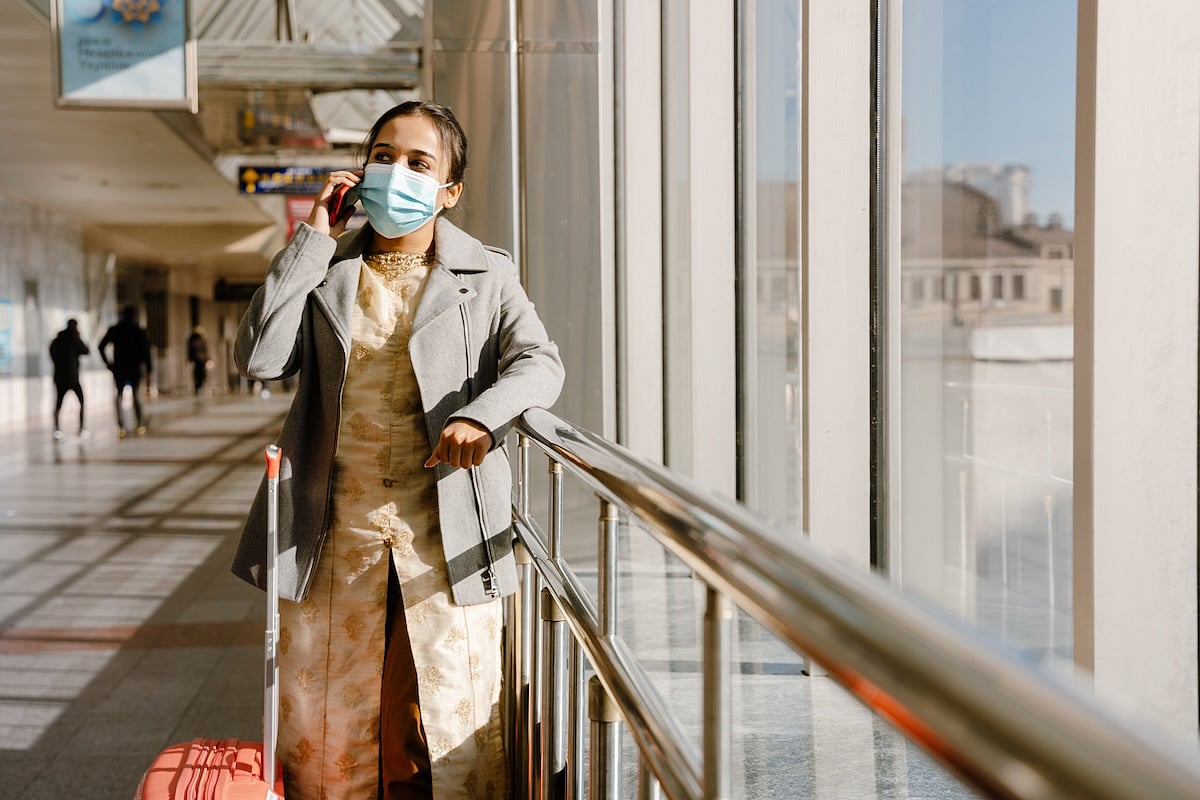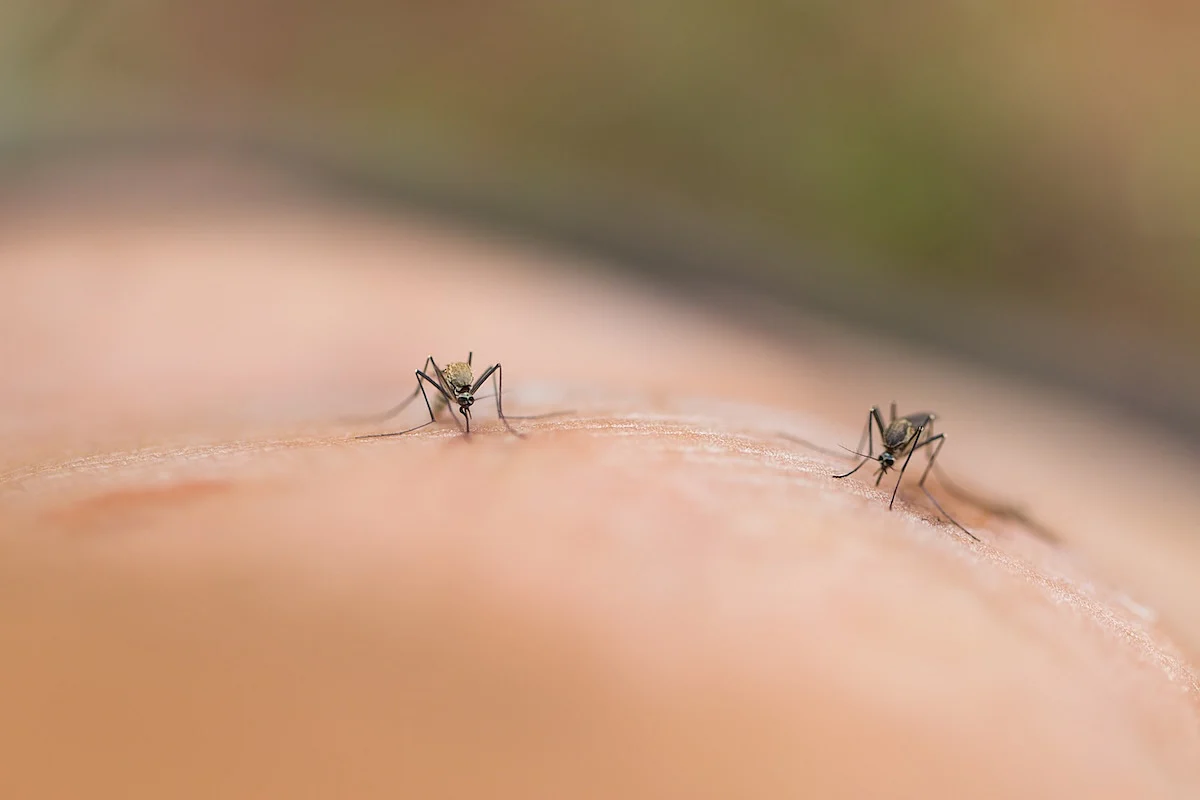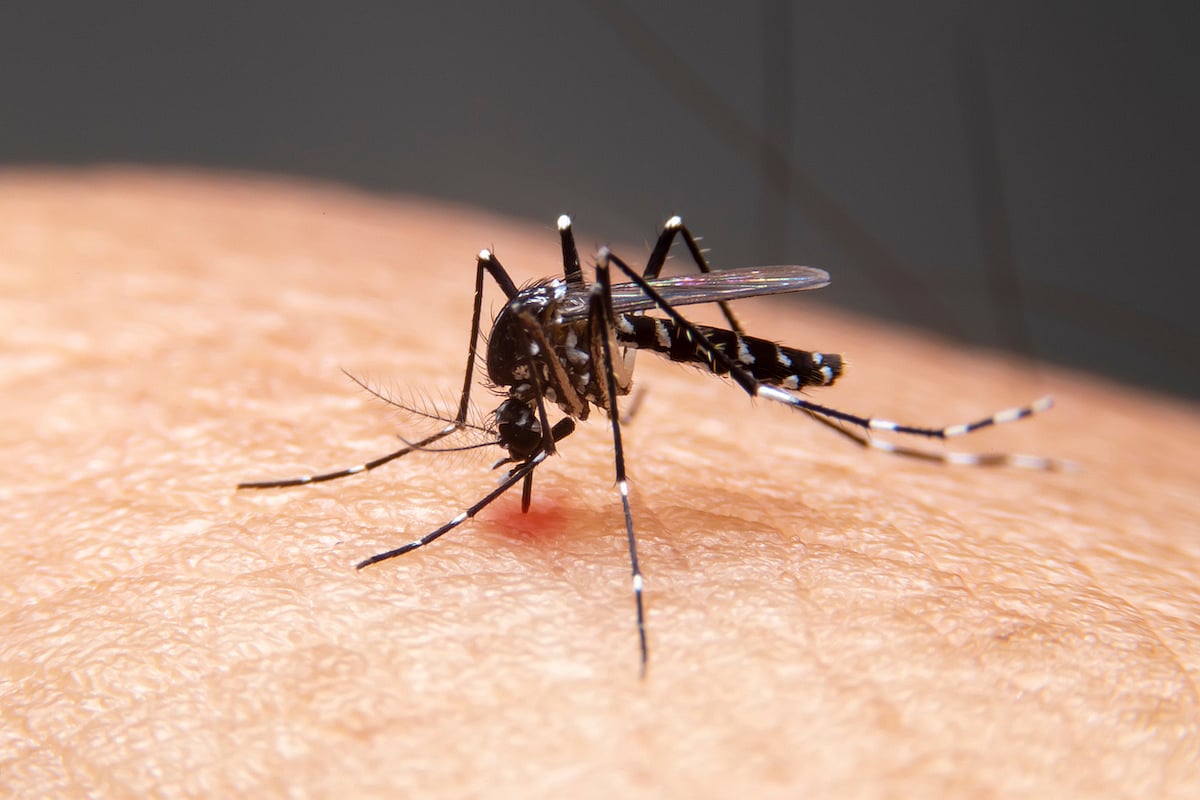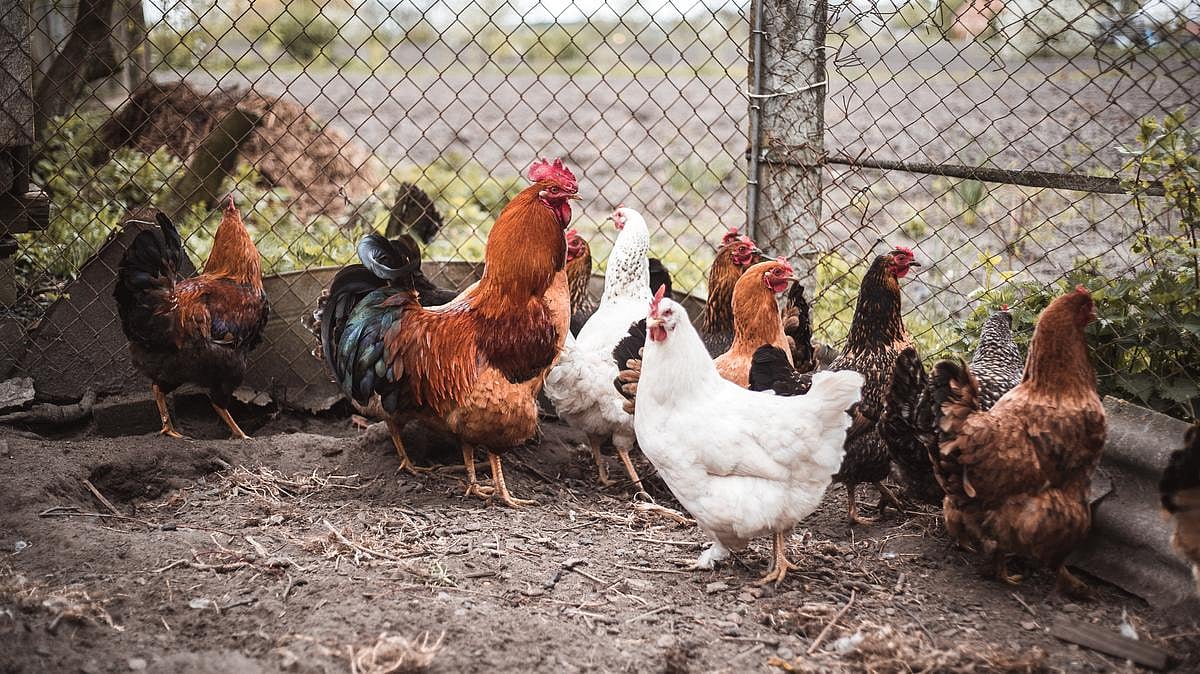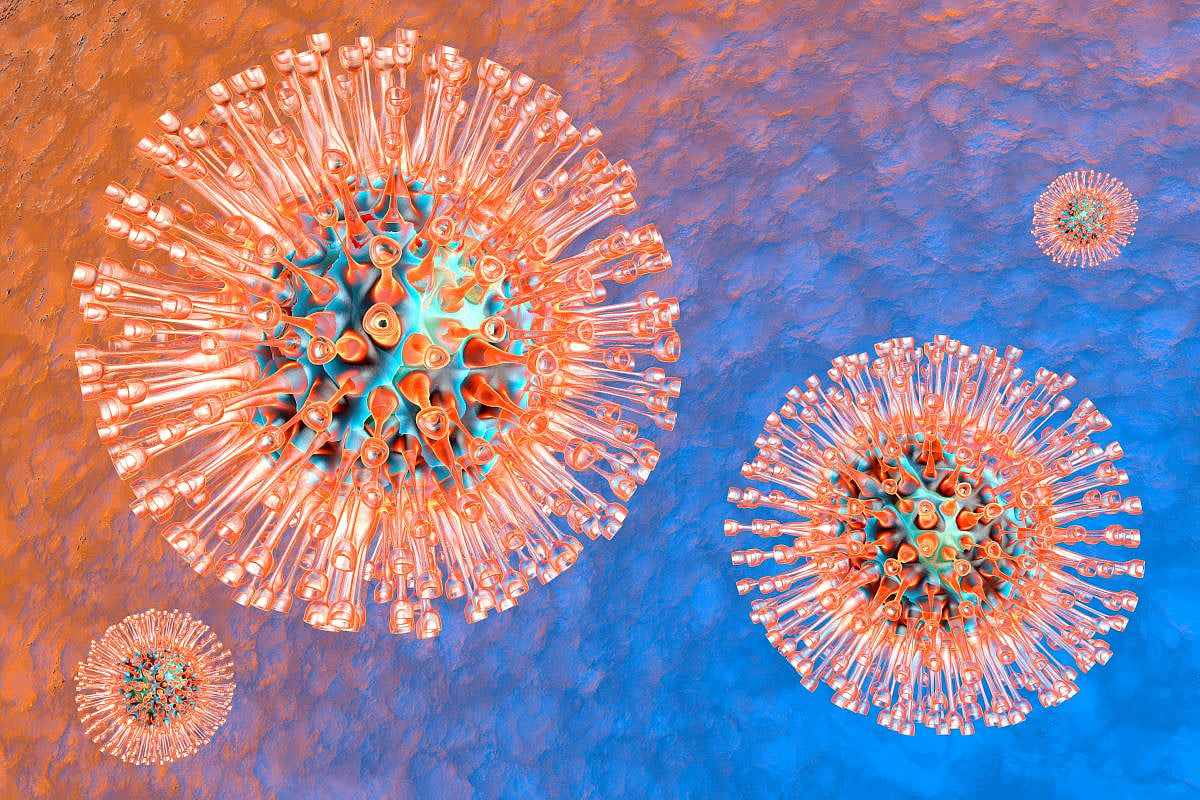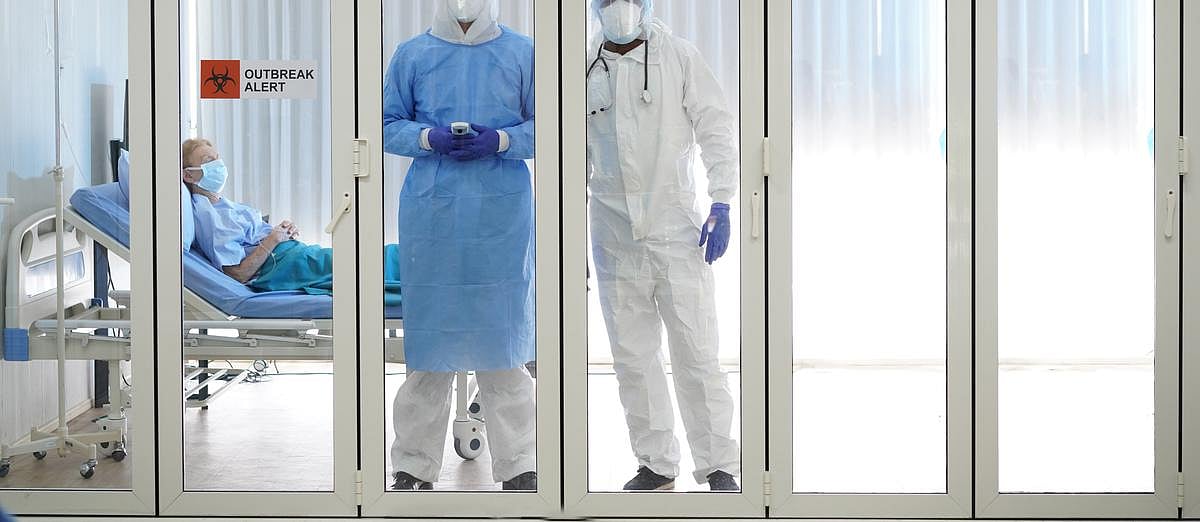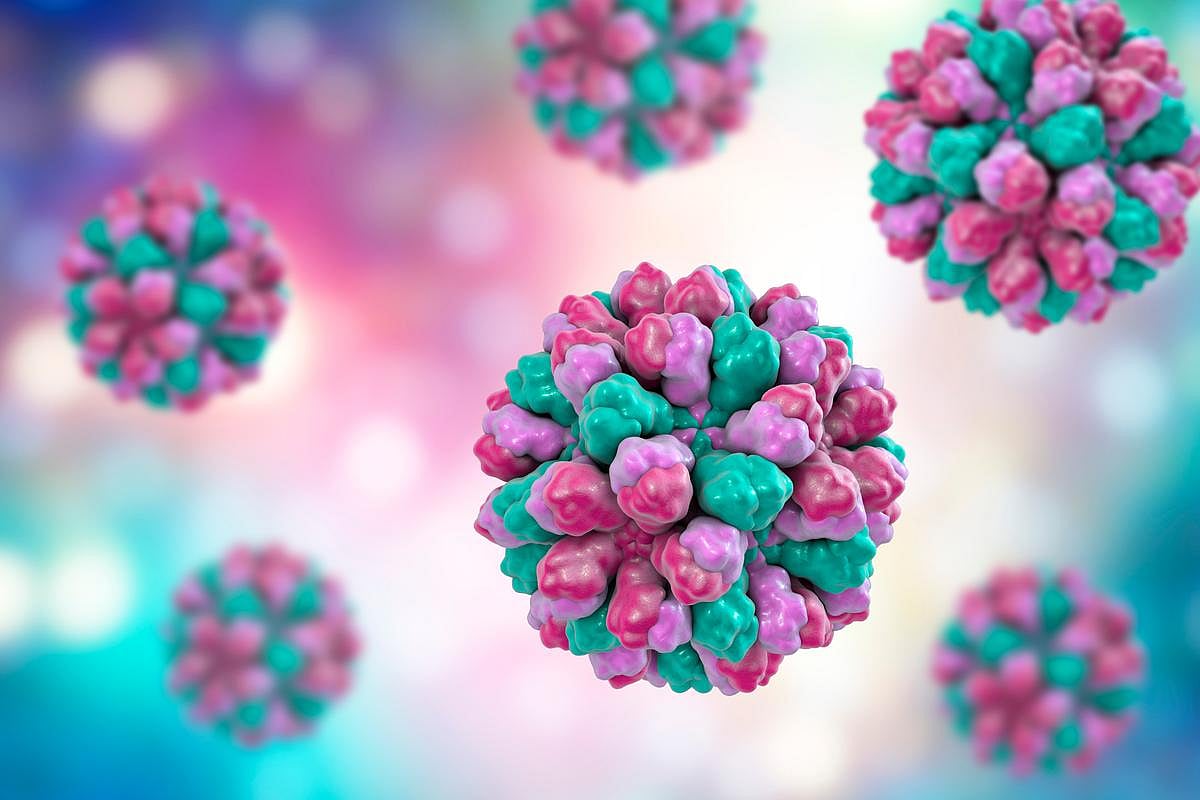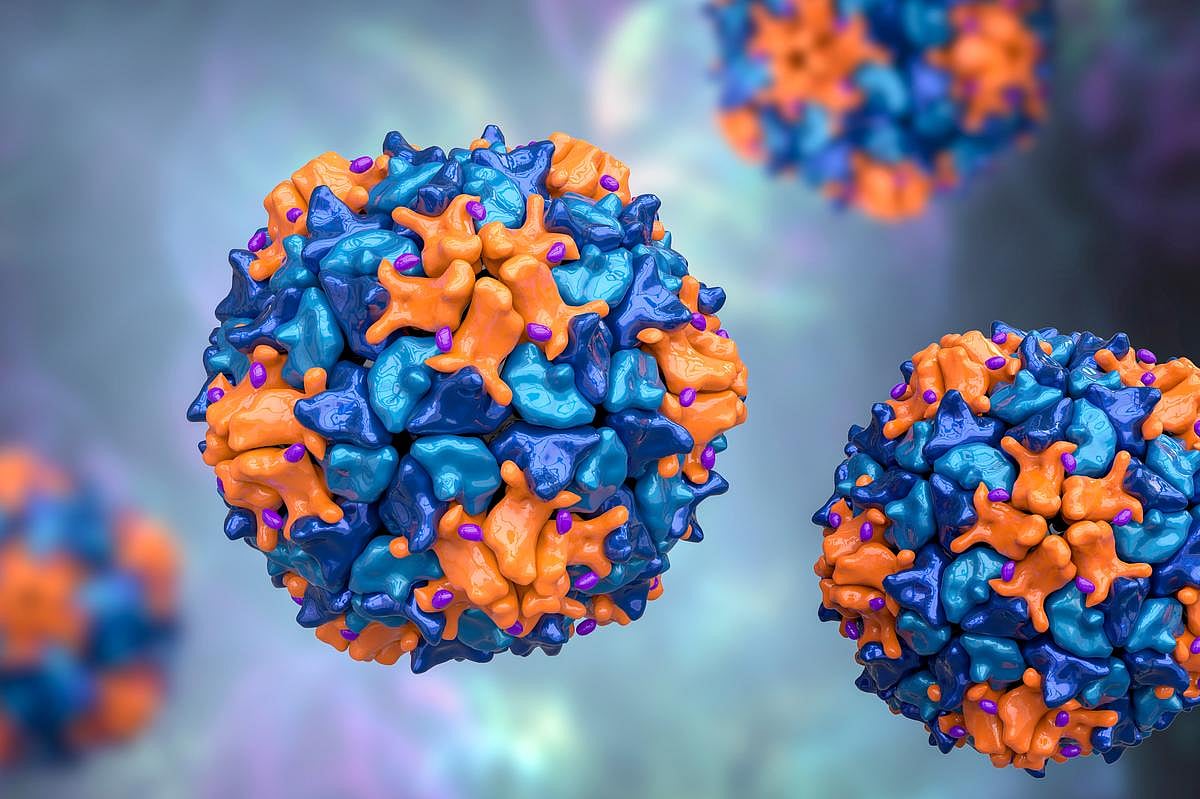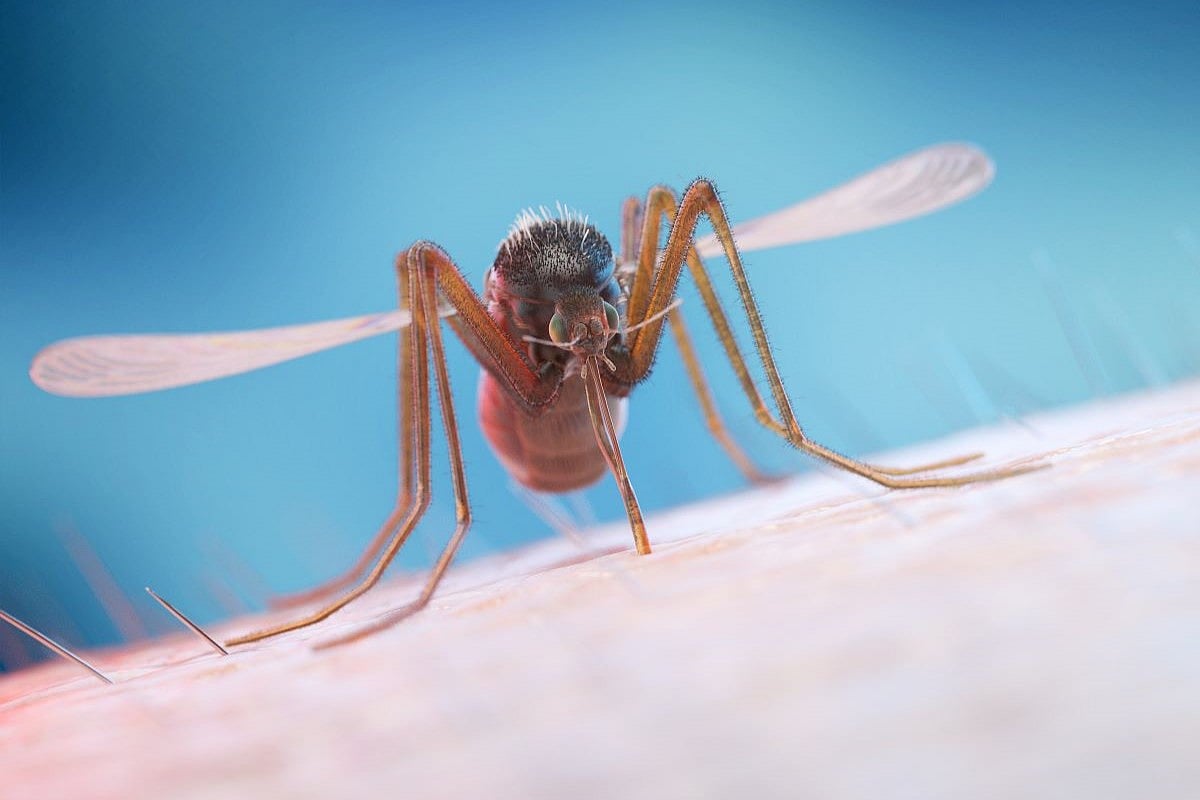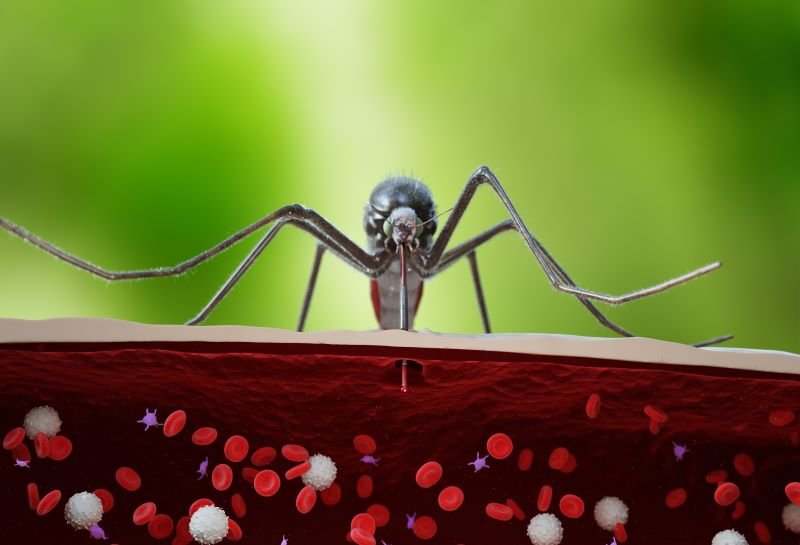Using the RefillRx mobile app? Then you will love our new, ENHANCED Sentry Drug Center mobile app.
Quickly request refills or login and manage your prescriptions on the go!
Available on both iTunes and Google Play.
Call or Visit for All of your Vaccination Needs!
Get Healthy!
Results for search "Viruses".
09 Jul
A Usually “Harmless Virus” May Trigger or Contribute to Parkinson’s Disease
A new study out of Northwestern Medicine finds evidence of the human pegivirus in the brains of people with Parkinson’s disease, but not in the brains of people without the neurological condition.
Health News Results - 471
Reports of new Nipah virus cases in India have raised worries about yet another deadly outbreak.
Nipah is a rare virus that can cause severe brain swelling and breathing problems, and there are no approved vaccines or treatments.
Health officials ...
- I. Edwards HealthDay Reporter
- |
- February 8, 2026
- |
- Full Page
The World Health Organization (WHO) says there is a low risk that the deadly Nipah virus will spread beyond India, where two people tested positive.
In an email sent to the Reuters news agency, WHO said it does not recommend travel or trade restrictions in the wake of the infections.
“The WHO considers the risk of further spread of infection from these two cases is lo...
- I. Edwards HealthDay Reporter
- |
- February 3, 2026
- |
- Full Page
Genetics appear to help determine who develops multiple sclerosis (MS), a pair of new studies says.
A person’s genetics interact with an infection with Epstein-Barr virus (EBV) to cause a severe autoimmune reaction that leads to multiple sclerosis, resea...
- Dennis Thompson HealthDay Reporter
- |
- January 15, 2026
- |
- Full Page
One of humanity’s most common viruses is behind the autoimmune disorder known as lupus, according to a new study.
Epstein-Barr virus (EBV) resides silently in the bodies of 19 out of 20 Americans, most commonly causing mononucleosis among teens and young adu...
- Dennis Thompson HealthDay Reporter
- |
- November 14, 2025
- |
- Full Page
A Long Island resident has tested positive for the chikungunya virus, the first locally acquired case in the U.S. since 2019, New York state health officials announced.
The infection was detected in a Nassau County resident who began showing symptoms in August after traveling outside the region but not outside ...
- I. Edwards HealthDay Reporter
- |
- October 16, 2025
- |
- Full Page
Health officials in China are reporting more than 8,000 cases of chikungunya, a virus spread by mosquitoes that can cause fever and painful joints.
The outbreak is centered in Foshan, a city in the southeastern province of Guangdong with nearly 10 million people. Hong Kong, Macao and Hunan province — more than 400 miles north — have also reported cases.
In response, the ...
- I. Edwards HealthDay Reporter
- |
- August 8, 2025
- |
- Full Page
U.S. Department of Health and Human Services (HHS) Secretary Robert F. Kennedy Jr. has canceled nearly $500 million in grants and contracts meant to support mRNA vaccine development, the agency announced Tuesday.
The funding had been awarded to 22 research projects managed by the Biomedical Advanced Research and Develo...
- I. Edwards HealthDay Reporter
- |
- August 7, 2025
- |
- Full Page
Florida virologist John Lednicky couldn’t have a more devoted research partner than his sleek black house cat Pepper.
Pepper, an avid hunter who often leaves "gifts" for his people, made news last year for his role in helping detect the arrival in the U.S. of an exotic germ called
Illinois has confirmed its first human case of West Nile virus this year, health officials say.
The person, who lives in southern Illinois, was hospitalized with complications from the mosquito-borne virus, according to the U.S. Centers for Disease Control and Prevention (CDC).
This is the earliest West Nile virus case reported in Illinois since 2016. Health officials say it’s...
- HealthDay Reporter
- I. Edwards
- |
- June 26, 2025
- |
- Full Page
Five years after COVID-19 first hit the United States, scientists are already brainstorming how to stop the next big virus.
One possible solution? A special kind of ultraviolet light called far-UVC, CBS News reported.
Unlike regular UVC light, which can be harmful to people, far-UVC has a shorter wavelength. That means it can kill viruses and bacteria in the air without dam...
- HealthDay Reporter
- I. Edwards
- |
- April 10, 2025
- |
- Full Page
Scientists in China have discovered a new type of coronavirus in bats that can infect human cells, but experts say it’s not a threat to public health -- right now.
They reported recently in the journal Cell that they found the virus, called HKU5-CoV-2, in anal swab samples from a Pipistrellus bat.
...
- HealthDay Reporter
- India Edwards
- |
- February 26, 2025
- |
- Full Page
After years of speculation, the CIA has weighed in yet again: A lab leak is now considered the likely origin of the COVID pandemic.
However, the agency admits it has "low confidence" in its conclusion and says both a natural origin and a research-related incident are still possible.
“CIA assesses with low confidence that a research-related origin of the COVID-19 pandemic...
- HealthDay Reporter
- India Edwards
- |
- January 27, 2025
- |
- Full Page
For the first time, bird flu has been detected in a commercial poultry flock in Georgia.
The case -- confirmed in Elbert County by the Georgia Department of Agriculture (GDA) and the U.S. Department of Agriculture’s Animal and Plant Health Inspection Service -- involves the H5N1 strain of Highly Pathogenic Avian Influenza (HPAI).
It was the fifth time HPAI was detected in the ...
- HealthDay Reporter
- India Edwards
- |
- January 21, 2025
- |
- Full Page
The U.S. Centers for Disease Control and Prevention (CDC) is urging health care workers to accelerate bird flu testing for patients hospitalized with flu symptoms, as the H5N1 avian influenza outbreak continues to grow in the United States and Canada.
The advisory, issued Jan. 16, recommends that h...
- HealthDay Reporter
- India Edwards
- |
- January 17, 2025
- |
- Full Page
A deadly bird flu outbreak has wreaked havoc on U.S. chicken farms, claiming the lives of over 20 million egg-laying chickens last quarter, marking the worst impact on America's egg supply since the outbreak began in 2022.
U.S. Department of Agriculture (USDA) data shows the staggering toll included chickens culled to contain the virus, too. This, in turn, has contributed to record-high e...
- HealthDay Reporter
- India Edwards
- |
- January 14, 2025
- |
- Full Page
A California man's tragic story highlights the growing risks associated with bird flu infections in domestic animals.
Joseph Journell of San Bernadino lost two of his beloved cats, a 14-year-old tabby, Alexander, and Tuxsie, a 4-year-old tuxedo cat, after they drank raw milk from a lot recalled for H5N1 bird flu contamination, a news release from Associated Press shows.
A t...
- HealthDay Reporter
- India Edwards
- |
- January 13, 2025
- |
- Full Page
That cold sore on your lip might be painful and unsightly, but it could also be a harbinger of debilitating brain aging.
The oral herpes virus appears to be linked with Alzheimer’s disease, suggesting that the common infection might play a role i...
- HealthDay Reporter
- Dennis Thompson
- |
- January 8, 2025
- |
- Full Page
A Louisiana resident has died after being hospitalized with bird flu in December of last year, marking the first known U.S. death from the virus.
The patient who, "was over the age of 65 and was reported to have underlying medical conditions," state health officials announced in a statement, tested positive for the virus and developed sever...
- HealthDay Reporter
- India Edwards
- |
- January 7, 2025
- |
- Full Page
A norovirus outbreak aboard the P&O Cruises’ Arcadia ship last fall left dozens of passengers confined to their cabins and is now linked to the death of a 77-year-old British passenger.
Alan Forster, a retired teacher from Paignton, England, fell sick with norovirus...
- HealthDay Reporter
- India Edwards
- |
- January 6, 2025
- |
- Full Page
A Canadian teen's severe bird flu infection has highlighted growing concerns about the H5N1 virus, commonly known as bird flu, which has seen a steady rise in human cases across the U.S.
According to a news release, the 13-year-old, who was hospita...
- HealthDay Reporter
- India Edwards
- |
- January 2, 2025
- |
- Full Page
Norovirus, a highly contagious stomach bug, is surging across the United States this winter, according to the latest data from the U.S. Centers for Disease Control and Prevention (CDC).
The data shows 91 outbreaks of norovirus during the week of Dec. 5, a sharp rise from the 69 outbreaks recorded the previo...
- HealthDay Reporter
- India Edwards
- |
- December 30, 2024
- |
- Full Page
A devastating bird flu outbreak has killed 20 big cats at the Wild Felid Advocacy Center of Washington, a nonprofit animal sanctuary in Shelton, Wash.
The deaths, which include four cougars and a half-Bengal tiger, have led the sanctuary to declare a quarantine to prevent further spread of the virus.
"Our sanctuary is under quarantine to protect our remaining animals and prevent fur...
- HealthDay Reporter
- India Edwards
- |
- December 27, 2024
- |
- Full Page
Picture this: a beloved cat, playful and healthy one day, falls mysteriously ill the next. Soon after, the shocking culprit is revealed -- bird flu, a virus that most people associate with poultry and wild birds.
Now, scientists are warning that domestic cats could potentially prompt a public health crisis.
According to a new study published Dec. 9 in the journal
There's early evidence that a mysterious flu-like illness that has sickened 416 people and left 75 dead in the Democratic Republic of Congo over recent weeks may be malaria.
Laboratory samples taken from infected people are suggestive of malaria, although more research is needed to confirm that, health officials said.
“Of the 12 samples taken, nine were positive for malaria bu...
- HealthDay Reporter
- Robin Foster
- |
- December 12, 2024
- |
- Full Page
Faced with rising cases of bird flu virus being detected in raw milk in California, the U.S. Department of Agriculture (USDA) on Friday announced it would mandate testing for the virus in milk nationwide.
The National Milk Testing Strategy (NMTS) "builds on measures taken by USDA and federal and state partners since the outbreak of highly pathogenic avian influenza [HPAI] H5N1 in dairy ca...
- HealthDay Reporter
- Robin Foster
- |
- December 6, 2024
- |
- Full Page
A California dairy farm has expanded a recall of its raw milk and cream after state health officials discovered bird flu virus in more milk samples.
In a notice posted Tuesday, Fresno-based Raw Farm LLC said it has now recalled all whole milk and cream products with "use by" dates of Nov. 27 to Dec. 13.
Meanwhile, California health ...
- HealthDay Reporter
- Robin Foster
- |
- December 5, 2024
- |
- Full Page
Health officials in the Democratic Republic of Congo are racing to try to identify the cause of a mysterious, flu-like illness that has sickened 376 people and left 79 dead in that country.
In a alert posted on the social media platform X on Tuesday, the Congo's Ministry of Public Health, Hygiene and Social Security said t...
- HealthDay Reporter
- Robin Foster
- |
- December 5, 2024
- |
- Full Page
A cutting-edge genetic test can rapidly detect and identify almost any kind of disease-causing microorganism in the human body, whether it’s a virus, bacteria, fungus or parasite, researchers say.
Doctors have been using the genetic test for more than a decade to identify pathogens in spinal fluid, after its development at the University of California-San Francisco.
And now re...
- HealthDay Reporter
- Dennis Thompson
- |
- November 12, 2024
- |
- Full Page
Health officials are investigating the case of an Iowa resident who died of Lassa fever after traveling recently to West Africa.
The Ebola-like virus is rarely seen in the United States, according to the U.S. Centers for Disease Control and Prevention.
"The CDC and the Iowa Department of Health are investigating a suspected case of Lassa fever, which was diagnosed today in an Iowa r...
- HealthDay Reporter
- Robin Foster
- |
- October 29, 2024
- |
- Full Page
The bad news first: shower heads and toothbrushes in an average bathroom are teeming with an extremely diverse collection of viruses, most of which have never been seen before, a new study finds.
Now, the good news.
These viruses target bacteria, not people, and could provide a new means of confronting the rise in antibiotic-resistant germs, researchers report.
These microorga...
- HealthDay Reporter
- Dennis Thompson
- |
- October 9, 2024
- |
- Full Page
A non-drug nasal spray could theoretically help stop the spread of respiratory viruses like the flu and COVID-19 better than wearing a mask, a new study suggests.
The spray uses ingredients that are medically inactive to trap germs in the nose before they can infect a person, researchers said.
<...- HealthDay Reporter
- Dennis Thompson
- |
- September 25, 2024
- |
- Full Page
New England is on alert following one death and a handful of infections of eastern equine encephalitis (EEE) virus.
A New Hampshire resident died after contracting EEE, which is spread by mosquito bites, according to a release issued in late August from t...
- HealthDay Reporter
- Dennis Thompson
- |
- September 3, 2024
- |
- Full Page
Cancer growth can be fueled by flecks of ancient viral DNA lodged into the genetics of modern humans, a new study says.
Overall, about 8% of the human genome is made of bits of DNA left behind by viruses that infected our primate ancestors, researchers say.
Called “endogenous retroviruses,†these DNA fragments have long been considered harmless junk littering the modern ...
- HealthDay Reporter
- Dennis Thompson
- |
- July 19, 2024
- |
- Full Page
Over-the-counter nasal sprays could be a potent weapon against a major public health threat -- antibiotic resistance, researchers report.
Their analysis, which looked at data from nearly 14,000 adults, found that common nasal sprays could help keep upper respiratory tract infections at bay, reducing the need for antibiotics.
Antibiotic resistance caused by overuse and misuse of thes...
- HealthDay Reporter
- Carole Tanzer Miller
- |
- July 15, 2024
- |
- Full Page
While exposure to raw cow's milk infected with the H5N1 avian influenza virus can make you sick, a new study suggests the virus may not spread quickly to other people.
Researchers at the University of Wisconsin-Madison found that mice and ferrets got sick with influenza when H5N1 bird flu virus was...
- HealthDay Reporter
- Carole Tanzer Miller
- |
- July 10, 2024
- |
- Full Page
An experimental "air mask"could help ward off infectious diseases while people are on the job, researchers report.
The mask uses an air curtain blowing down from the brim of a hard hat to prevent airborne viruses from reaching a worker's eyes, nose and mouth.
The method can block 99.8% of viruses, lab tests show.
"Our air curtain technology is precisely designed to protect wea...
- HealthDay Reporter
- Dennis Thompson
- |
- July 10, 2024
- |
- Full Page
Health officials in the Florida Keys have issued a dengue fever alert after two confirmed cases of the mosquito-borne disease were reported there.
In the alert, issued this week by the Monroe County Department of Health, officials said they were taking precautions to curb the spread of dengue fever. Those measures include ...
- HealthDay Reporter
- Robin Foster
- |
- July 3, 2024
- |
- Full Page
Your children's never-ending colds and sniffles may have protected them from the worst effects of COVID-19, new research suggests.
Throughout the pandemic, it was clear that the SARS-CoV-2 virus tends to cause less severe symptoms in children than in ad...
- HealthDay Reporter
- Carole Tanzer Miller
- |
- July 3, 2024
- |
- Full Page
As bird flu continues to spread among U.S. dairy cows, reassuring new government research finds the pasteurization process widely used in the industry effectively kills all bird flu virus in milk.
In a health update posted Friday, the U.S. Food and Drug Administr...
- HealthDay Reporter
- Robin Foster
- |
- July 1, 2024
- |
- Full Page
Live bird flu virus has not been found in any of the first batch of retail milk samples tested, federal health officials said Friday.
Amid an ongoing outbreak of bird flu in U.S. dairy cows, the early findings should reassure the public that the milk sold in stores remains safe, officials added.
In the
As bird flu continues to spread among dairy cows in the United States, the U.S. Department of Agriculture said Wednesday it will start requiring testing of the animals if they are moved across state lines.
The "USDA has identified [bird flu] spread between cows within the same herd, spread from cows to poultry, spread between dairies associated with cattle movements and cows without clin...
- HealthDay Reporter
- Robin Foster
- |
- April 25, 2024
- |
- Full Page
Alaska health officials say a man in that state has died after contracting Alaskapox, a rare virus that mostly infects small mammals.
In a statement, the Alaska Section of Epidemiology said the patient was "an elderly man from the Kenai Peninsula with a history of drug-induced immunosuppression" due to cancer treatments.
...- HealthDay Reporter
- Robin Foster
- |
- February 14, 2024
- |
- Full Page
Low vaccination rates for the flu, RSV and COVID-19 are putting Americans at higher risk for severe illness and hospitalization this winter, a new government alert warned Thursday.
There is an "urgent need"to boost vaccination rates as the trio of viruses spread through the country, the U.S. Centers of Disease Control and Prevention said.
"Low vaccination rates, coupled with ongoing...
- HealthDay Reporter
- Robin Foster
- |
- December 15, 2023
- |
- Full Page
FRIDAY, Dec. 1, 2023 (Healthday News) -- In testimony provided Thursday to members of Congress, the head of the U.S. Centers for Disease Control and Prevention said that a surge in respiratory illnesses in China is not being fueled by a new virus.
Instead, the spike can be linked to existing viruses and bacteria, including COVID-19, the flu, respiratory syncytial virus (RSV) and Mycop...
- HealthDay Reporter
- Robin Foster
- |
- December 1, 2023
- |
- Full Page
Air filters might help keep the air in your home fresh, but a new review finds they don't appear to reduce your risk of catching an airborne virus.
Technologies designed to make indoor spaces safer from infection are not effective in the real world, researchers from the University of East Anglia in the UK argue.
The team analyzed data from 32 prior studies in which air treatment tec...
- HealthDay Reporter
- Dennis Thompson
- |
- November 17, 2023
- |
- Full Page
FRIDAY, Nov. 10, 2023 (Healthday News) -- The first vaccine to prevent infection with the chikungunya virus was approved by the U.S. Food and Drug Administration on Thursday.
The single-dose shot, known as Ixchiq, is approved for adults who are at increased risk of exposure to the virus.
"Infection with chikungunya virus can lead to severe disease and prolonged health problems, part...
- HealthDay Reporter
- Robin Foster
- |
- November 10, 2023
- |
- Full Page
A cheap, do-it-yourself air purifier is powerful enough to effectively protect a home from free-floating flu and COVID-19 viruses, according to test results from the U.S. Environmental Protection Agency.
The filter, crafted with common hardware store supplies costing $60, outperformed pricey off-the-shelf air filters in
Demand for a new shot that protects babies against respiratory syncytial virus (RSV) has outpaced supply, prompting U.S. health officials to recommend the doses be saved for high-risk infants.
In an alert posted Monday afternoon, the U.S. Centers for Disease Control and Prevention said nirsevimab (Beyfortus) should be reserved ...
- HealthDay Reporter
- Robin Foster and Cara Murez and Ernie Mundell
- |
- October 24, 2023
- |
- Full Page
A potentially deadly infection carried by mosquitoes may be more prevalent than once thought, U.S. health officials report.
Named the Cache Valley virus after the Utah area in which it was first found in 1956, it has caused seven serious infections nationwide. But it may have infected up to 18% of the population, ac...
- HealthDay Reporter
- Steven Reinberg
- |
- October 19, 2023
- |
- Full Page
Yellow fever may be resurfacing in the United States, thanks to climate change.
The mosquito-borne viral illness decimated southern U.S. cities from 1820 to 1905, and now a new report says it could return to those areas.
One of the potential reasons for a yellow fever resurgence? Global warming, because mosquitoes love warm, wet weather.
Exactly where yellow fever...
- HealthDay Reporter
- Denise Mann
- |
- October 18, 2023
- |
- Full Page

